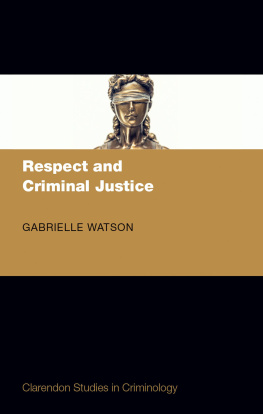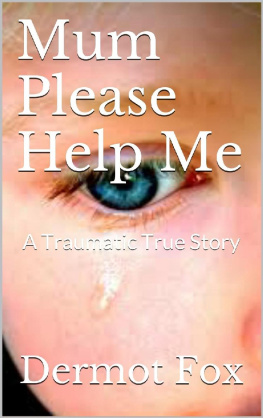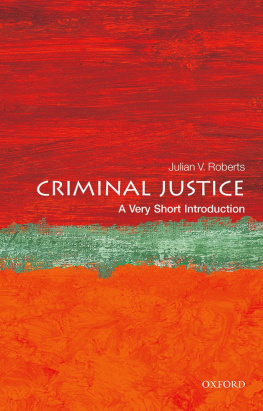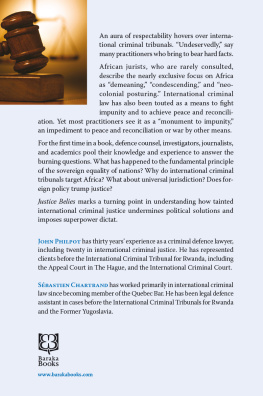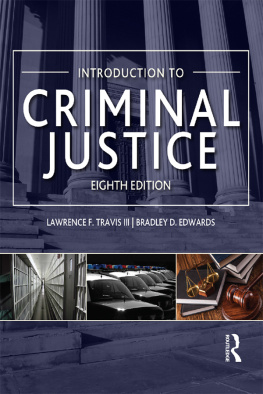
INFORMAL CRIMINAL JUSTICE
Advances in Criminology
Series Editor: David Nelken
Titles in the Series
Engendering Resistance: Agency and Power in Womens Prisons
Mary Bosworth
Integrating a Victim Perspective within Criminal Justice International debates
Edited by Adam Crawford and Jo Goodey
Gender Criminology
Violence and women in Australia and Japan
Patricia Eastel, Yoko Hosoi and Leon Wolff
Contrasting Criminal Justice Getting from here to there
Edited by David Nelken
Critique and Radical Discourses on Crime
George Pavlich
Blood in the Bank
Social and legal aspects of death at work
Gary Slapper
Governable Places
Readings on governmentality and crime control
Edited by Russell Smandych
Items
Stories of product counterfeiting
Jon Vagg and Justine Harris
Migration, Culture Conflict and Crime
Edited by Joshua D. Freilich, Graeme Newman, S. Giora Shoham and Moshe Addad
Hard Lessons: Crime Control in Late Modernity
Edited by Richard Hil and Gordon Tait
Informal Criminal Justice
Edited by Dermot Feenan
Becoming Delinquent: British and European Youth, 1650-1950
Edited by Pamela Cox and Heather Shore
Informal Criminal Justice
Edited by
DERMOT FEENAN
University of Ulster; Northern Ireland
First published 2002 by Dartmouth Publishing Company and Ashgate Publishing
Reissued 2018 by Routledge
2 Park Square, Milton Park, Abingdon, Oxon 0X14 4RN
711 Third Avenue, New York, NY 10017, USA
Routledge is an imprint of the Taylor & Francis Group, an informa business
Copyright Dermot Feenan 2002
All rights reserved. No part of this book may be reprinted or reproduced or utilised in any form or by any electronic, mechanical, or other means, now known or hereafter invented, including photocopying and recording, or in any information storage or retrieval system, without permission in writing from the publishers.
Notice:
Product or corporate names may be trademarks or registered trademarks, and are used only for identification and explanation without intent to infringe.
Publishers Note
The publisher has gone to great lengths to ensure the quality of this reprint but points out that some imperfections in the original copies may be apparent.
Disclaimer
The publisher has made every effort to trace copyright holders and welcomes correspondence from those they have been unable to contact.
A Library of Congress record exists under LC control number: 2002020617
ISBN 13: 978-1-138-74275-8 (hbk)
ISBN 13: 978-1-315-18211-7 (ebk)
Contents
Dermot Feenan
Colin Harvey
Ray Abrahams
Dermot Feenan
Kieran McEvoy and Harry Mika
Sandra Walklate
Rebekah Lee and Jeremy Seekings
Anthony Minnaar
Arthur D. Brenner
Susan Jean and W. Fitzhugh Brundage
Ray Abrahams is a Fellow of Churchill College, University of Cambridge, and author of Vigilant Citizens: Vigilantism and the State (Polity Press, 1998).
Arthur D. Brenner is Associate Professor of History at Siena College in Loudonville, New York. He is co-editor (with Bruce B. Campbell) of Death Squads in Global Perspective: Murder with Deniability (St. Martins, 2000).
W. Fitzhugh Brundage is a Professor at the University of Florida, where he is also Chair of the History Department. Most recently, he edited Where These Memories Grow: History, Memory, and Southern Identity (University of North Carolina Press, 2000).
Dermot Feenan is a Lecturer in Law at the University of Ulster, and a Visiting Scholar at Cornell Law School, Cornell University, 2002.
Colin Harvey is Professor of Constitutional and Human Rights Law at the University of Leeds. His most recent book is an edited volume, Human Rights, Equality and Democratic Renewal in Northern Ireland (Hart, 2001).
Susan Jean, a recipient of a Mellon Fellowship, is a doctoral student at Columbia University.
Rebekah Lee is a doctoral student in South African history at Queens College, Oxford.
Kieran McEvoy is a Reader in the School of Law, and Assistant Director of the Institute of Criminology and Criminal Justice, at The Queens University of Belfast. He is co-author of Crime, Community and Locale: The Northern Ireland Communities Crime Survey (with David OMahony, Ray Geary and Jon Morison)(Ashgate, 2000).
Harry Mika is a Professor at Central Michigan University and has conducted research on restorative justice in Northern Ireland.
Anthony Minnaar is Director of the Institute for Human Rights and Criminal Justice Studies, Technikon, South Africa.
Jeremy Seekings is an Associate Professor in the Departments of Political Studies and Sociology at the University of Cape Town. His publications include The UDF: A History of the United Democratic Front in South Africa, 1983-1991 (2000) and (with Nicoli Nattrass) From Race to Class: Unemployment, Social Change and Inequality in South Africa (2002).
Sandra Walklate is currently Professor of Sociology at Manchester Metropolitan University and Honorary Research Fellow in the Centre for Comparative Criminology and Criminal Justice, Bangor, University of Wales. Her most recent publication is (with Karen Evans) Zero Tolerance or Community Tolerance? Managing Crime in High Crime Areas (Ashgate, 1999).
I am grateful to the contributors to this book for their trust, labour and co-operation, to Pat McKee and David Pettigrew for help in formatting the manuscript, to Karen McCann for work on the index, and to Dr. Venkat Iyer for advice on the book proposal. Thanks are due also to John Irwin and Pauline Beavers of Ashgate for their co-operation.
Dermot Feenan
Jordanstown
Dermot Feenan
The field of informal criminal justice is a key area of concern to those interested in law, criminology, policing, public policy and the sociology of crime. Its contemporary relevance can be seen in the emergence of restorative justice programmes, characterized by informal mediation between victim and offender (Morris and Young, 2000), and throughout continuing debates in legal pluralism regarding the relationship between state law and non-state law. The significance of informal criminal justice lies also in its potential to act as a theme by which to analyse developments in the governance of crime. The hollowing out of the state in many advanced capitalist countries in late modernity re-focuses attention on the peripheral exercise of governance (Braithwaite, 2000). There is evidence of a risk that formal, open and accountable systems of justice will be replaced and concealed by a range of bureaucratic sites (Hillyard and Gordon, 1999). The reactionary culture of the late twentieth and nascent twenty-first centuries is characterized in the sphere of criminal justice by control and confinement (Garland, 2001), much of which is evident in the rise of relatively informal private policing and formal incarceration. The persistence of incarceration as a function of criminal justice, despite its penological failures (Garland, 1990), underlines the need for non-legal forms of punishment. The interest in informalism as part of the access to justice movement in the 1970s, is renewed by the recent reiteration, as in Britain, of a need for alternatives to lawyers and courts to resolve disputes (Lord Chancellors Department, 1998). Yet, the shift towards responsive criminal justice is contained within an administrative




